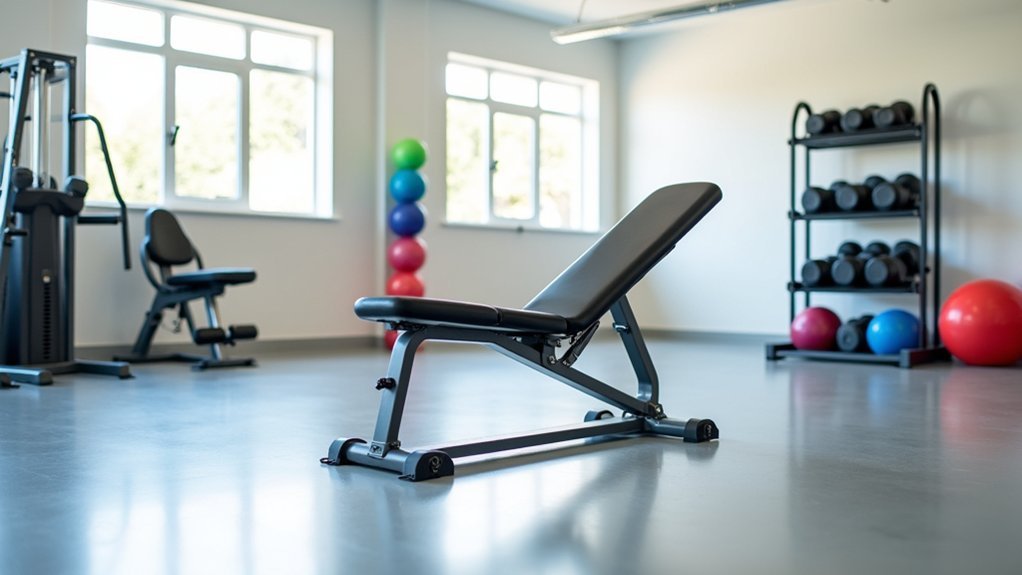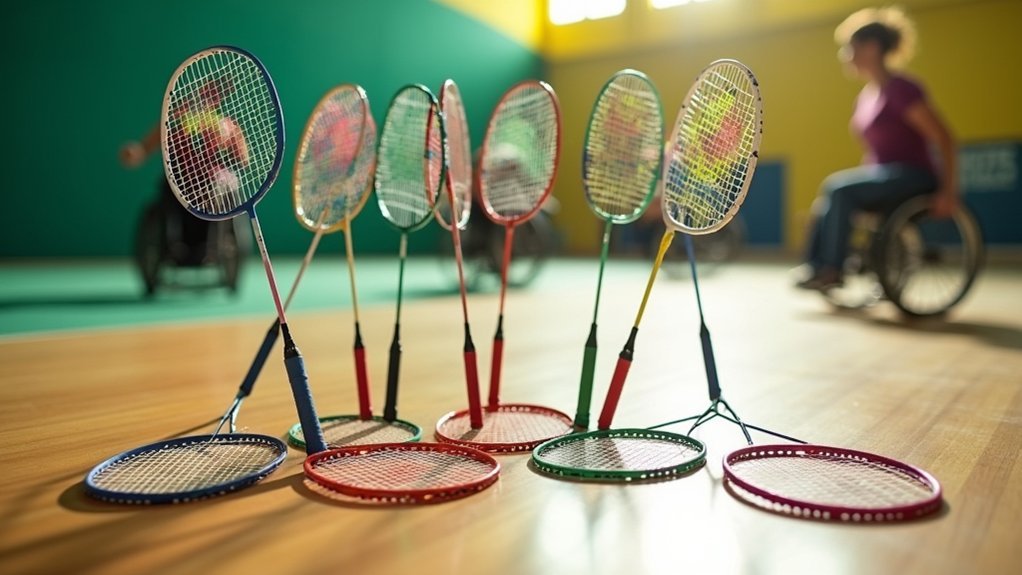Multiple sclerosis can challenge your thinking, but you can fight cognitive fog with proven strategies. Try MS-specific cognitive training games, practice visualization memory techniques, and maintain a regular exercise routine. Prioritize quality sleep, adopt a brain-healthy diet rich in omega-3s, and use digital tools like NeuroNation or iCAMS to track progress. Building social connections and engaging in intellectually stimulating activities strengthens your cognitive reserve. The right combination of these approaches offers powerful protection for your mental sharpness.
Understanding Cognitive Challenges in Multiple Sclerosis

While many associate MS primarily with physical symptoms, cognitive changes affect more than half of those living with the condition. These challenges can appear early in your disease journey, even during clinically isolated syndrome, and tend to be more prevalent in progressive forms of MS.
You’ll likely notice changes in processing speed first—this foundational skill affects other cognitive functions. Working memory, verbal and visual learning, executive functioning (like planning and decision-making), and visuospatial abilities are commonly affected domains.
The combination of physical disability and older age tends to show stronger correlation with cognitive impairment than how long you’ve had MS or its specific course.
These cognitive shifts can greatly impact your daily life, from maintaining employment to managing relationships. Even if you appear cognitively intact, subtle impairments may surface during complex tasks.
Understanding these challenges is your first step toward developing effective coping strategies.
Brain-Boosting Games That Improve Processing Speed
Three key types of brain-boosting games can considerably enhance your processing speed if you’re living with MS.
Studies show that cognitive training programs specifically designed for MS patients markedly improve information processing speed and executive function, allowing your brain to form new neural connections.
Research confirms that targeted MS cognitive training programs enhance brain processing and function while stimulating neuroplasticity.
- Visual-attentional games – Tablet-based videogames that challenge you to process visual information quickly can reveal and improve slowed processing.
- Executive function trainers – Games focusing on planning and decision-making help organize daily life activities.
- Sustained attention exercises – Video-game-based brain training improves your ability to focus for longer periods.
- Information processing challenges – Games that require quick thinking and reactions strengthen neural pathways critical for cognitive function.
These games aren’t just entertaining—they’re powerful tools in your rehabilitation journey, offering measurable cognitive improvements that transfer to daily activities. Recent research has shown combining these games with transcranial stimulation can significantly enhance processing speed in people with MS.
Memory Enhancement Techniques for Daily MS Management

Memory struggles are a common obstacle for those with MS, often affecting daily tasks and independence. You can combat these challenges through proven techniques like the Story Memory Technique, which uses visualization and storytelling to improve learning and retention.
Daily strategies make a significant difference: prioritize regular exercise, guarantee quality sleep, and maintain a brain-healthy diet. Building cognitive reserve through mentally stimulating activities helps protect against decline. Research suggests incorporating components of the MIND diet can significantly support brain tissue integrity, especially in early MS diagnosis.
Technology can be your ally—try memory-training apps, digital organizers, and smart home devices to support your daily routine. These tools complement structured approaches like Cognitive Remediation Therapy.
Your brain demonstrates remarkable neuroplasticity, becoming more efficient with consistent training. With regular practice, these techniques can create lasting improvements in your memory function.
The Science Behind Cognitive Rehabilitation in MS
Beneath the promising outcomes of cognitive rehabilitation lies a robust scientific foundation that explains why these interventions work for MS patients. Your brain possesses remarkable adaptability—neuroplasticity—which CR effectively leverages to create new neural pathways and strengthen existing ones.
Research shows how your brain physically responds to cognitive training:
- Increased brain activity appears in regions controlling attention, memory, and executive function after completing CR programs.
- Enhanced cerebellar activation correlates directly with improved cognitive performance.
- Functional reorganization occurs regardless of your cognitive impairment severity.
- Neuroplastic changes happen most readily in younger patients with relapsing-remitting or primary-progressive MS.
With 70% of MS patients experiencing cognitive challenges, these scientifically-backed interventions offer tangible hope for preserving and enhancing your mental capabilities. Notably, CR appears to improve functional connectivity and brain activation patterns that directly support cognitive performance.
Creating Your Personalized Brain Exercise Routine

Building a personalized brain exercise routine represents one of the most influential steps you can take to combat cognitive challenges associated with MS. Start by identifying your specific cognitive needs—whether it’s memory enhancement, attention improvement, or processing speed.
Your cognitive health strategy starts with a personalized brain exercise routine targeting your specific MS-related challenges.
Incorporate diverse activities that challenge different cognitive domains: puzzles for memory, timed games for processing speed, and reading for language skills.
Don’t overlook the power of mindfulness and meditation to improve cognitive clarity.
Technology can greatly enhance your efforts—apps like CogniFit offer tailored exercises that adapt to your performance. The platform recommends completing one session daily, at least three days per week, for optimal cognitive training results.
Support your cognitive routine with lifestyle adjustments: 30 minutes of physical exercise three times weekly, brain-friendly foods rich in omega-3s, adequate sleep, and regular social engagement.
These complementary approaches will maximize your cognitive rehabilitation results.
Digital Apps and Tools Designed for MS Cognitive Support
Technology has revolutionized cognitive support for MS patients, offering powerful tools right at your fingertips. These specialized applications can help track symptoms, improve memory, and enhance cognitive function when used regularly.
- My MS Manager – Track your symptoms and generate reports for your healthcare team using this free app available on both Apple and Android devices.
- iCAMS App – Experience faster cognitive assessments, reducing testing time from 23 to 14 minutes while maintaining accuracy.
- NeuroNation – Access 27 personalized memory training exercises across 250 levels, developed with neuropsychology experts.
- DIGICOG-MS – Self-assess cognitive function through digital tests for visuospatial and verbal memory, available on iOS and Android. Many of these apps were developed with patient input to ensure they address real-world cognitive challenges faced by MS patients.
Lifestyle Factors That Protect Your Brain Health

While medications play an essential role in MS management, your daily choices greatly impact brain health and cognitive function.
Regular aerobic exercise enhances information processing and preserves brain volume, so adapt physical activities to your abilities.
Maintain a balanced diet rich in vitamin D and nutrients supporting gut health. Personalized nutrition plans work best as dietary needs vary among individuals. Research shows that healthy weight management can significantly reduce the number of MS lesions and positively influence disease progression.
Prioritize quality sleep and practice stress reduction techniques like meditation or yoga. Don’t hesitate to seek professional mental health support when needed.
Stay socially connected and keep your brain active through hobbies, work, or leisure activities. Build strong support networks to enhance your quality of life.
Avoid smoking, limit alcohol, and get moderate sun exposure to maintain peak brain health.
Building Cognitive Reserve: Prevention Strategies for MS Fighters
Cognitive reserve—your brain’s resilience against disease-related damage—offers hope for MS fighters concerned about potential cognitive decline. This “mental savings account” can help preserve your memory and cognitive function even as MS progresses.
Think of cognitive reserve as your brain’s emergency fund—built through lifelong learning and healthy habits to protect against MS-related cognitive challenges.
To build your cognitive reserve, prioritize these evidence-backed strategies:
- Pursue intellectual enrichment – Continue learning through education, stimulating work, and mentally challenging hobbies to promote neuroplasticity.
- Exercise regularly – Commit to aerobic activity that supports hippocampal volume and neurogenesis, directly improving memory function.
- Stay socially connected – Maintain strong relationships and social activities that challenge your brain in different ways.
- Manage stress effectively – Reduce chronic stress that can deplete cognitive resources through meditation, adequate sleep, or counseling. Addressing depression treatment is crucial, as depression can decrease interest in brain-building activities and lower cognitive reserve.
Frequently Asked Questions
Can Cognitive Symptoms Fluctuate With MS Flares or Remissions?
Yes, your cognitive symptoms can fluctuate during MS flares and remissions. You’ll often experience worsening cognition during relapses, while some improvement may occur during remission periods, though this varies between individuals.
How Quickly Can Cognitive Rehabilitation Show Measurable Results?
You’ll typically see measurable improvements in cognitive function within 8-12 weeks of starting rehabilitation. Early intervention yields better results, with noticeable gains in verbal memory and working memory appearing after consistent practice.
Are Certain Cognitive Exercises More Effective During Specific MS Stages?
Yes, exercises targeting verbal and working memory are more effective in early MS, while multi-domain exercises work better earlier when neural plasticity is stronger. You’ll need ongoing training regardless of your disease stage for lasting benefits.
Do DMTS Prescribed for Physical Symptoms Indirectly Benefit Cognition?
Yes, DMTs prescribed for your physical MS symptoms can indirectly benefit your cognition. They reduce neuroinflammation, prevent brain atrophy, and may promote neurotrophic factors that support cognitive function, even though they’re primarily targeting physical symptoms.
Can Cognitive Training Reduce Dependency on Memory-Assistive Technologies?
Yes, cognitive training can reduce your dependency on memory-assistive technologies by improving your memory function, teaching compensatory strategies, and enhancing cognitive reserve. You’ll likely develop internal skills that replace external memory aids over time.
In Summary
You’ve got the tools to enhance your brainpower despite MS challenges. By combining cognitive exercises, digital support, and lifestyle adjustments, you’re building resilience against cognitive decline. Remember, your brain responds to consistent training just like muscles do. Stay committed to your personalized routine, celebrate small improvements, and don’t hesitate to adjust strategies as your needs change. You’re not just managing MS—you’re actively strengthening your cognitive abilities.





Leave a Reply